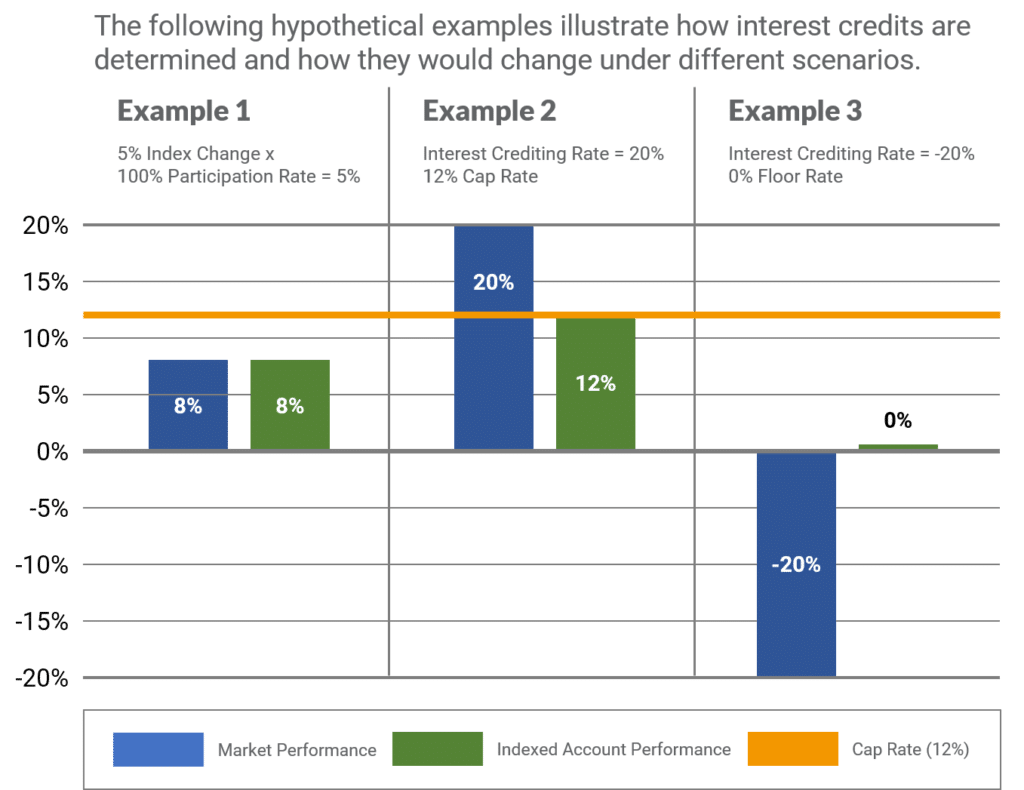All Categories
Featured
Table of Contents
Do they contrast the IUL to something like the Lead Overall Stock Market Fund Admiral Shares with no lots, an expense proportion (ER) of 5 basis factors, a turn over ratio of 4.3%, and a remarkable tax-efficient record of distributions? No, they compare it to some awful proactively taken care of fund with an 8% tons, a 2% ER, an 80% turnover ratio, and a horrible document of short-term capital gain distributions.
Common funds frequently make annual taxed circulations to fund owners, even when the worth of their fund has dropped in value. Mutual funds not only require revenue coverage (and the resulting yearly taxes) when the mutual fund is increasing in worth, but can likewise impose earnings tax obligations in a year when the fund has actually gone down in value.
You can tax-manage the fund, harvesting losses and gains in order to decrease taxed distributions to the financiers, but that isn't somehow going to alter the reported return of the fund. The ownership of mutual funds might need the mutual fund owner to pay approximated tax obligations (level premium universal life insurance).

IULs are simple to place to make sure that, at the proprietor's death, the recipient is not subject to either income or inheritance tax. The same tax obligation decrease methods do not work virtually also with common funds. There are various, typically pricey, tax catches connected with the moment trading of common fund shares, traps that do not use to indexed life Insurance.
Possibilities aren't very high that you're going to go through the AMT because of your mutual fund circulations if you aren't without them. The remainder of this one is half-truths at best. While it is real that there is no income tax due to your successors when they inherit the proceeds of your IUL plan, it is likewise true that there is no earnings tax due to your successors when they acquire a common fund in a taxable account from you.
Indexed Universal Life Good Or Bad
There are far better methods to prevent estate tax obligation issues than acquiring financial investments with low returns. Mutual funds might create earnings tax of Social Security benefits.

The development within the IUL is tax-deferred and may be taken as free of tax revenue via fundings. The plan proprietor (vs. the common fund manager) is in control of his or her reportable earnings, therefore enabling them to reduce and even get rid of the taxes of their Social Protection advantages. This is excellent.
Here's one more marginal problem. It holds true if you purchase a mutual fund for claim $10 per share right before the distribution day, and it distributes a $0.50 circulation, you are then mosting likely to owe tax obligations (probably 7-10 cents per share) in spite of the fact that you haven't yet had any type of gains.
In the end, it's really regarding the after-tax return, not exactly how much you pay in taxes. You're additionally possibly going to have even more cash after paying those tax obligations. The record-keeping needs for owning common funds are significantly more complicated.
With an IUL, one's documents are kept by the insurance provider, duplicates of annual statements are mailed to the owner, and distributions (if any type of) are completed and reported at year end. This is also type of silly. Obviously you ought to keep your tax obligation documents in situation of an audit.
Eclipse Indexed Life Insurance
Barely a factor to buy life insurance policy. Common funds are typically part of a decedent's probated estate.
Furthermore, they undergo the hold-ups and expenses of probate. The proceeds of the IUL policy, on the various other hand, is always a non-probate circulation that passes outside of probate straight to one's called beneficiaries, and is as a result not subject to one's posthumous creditors, unwanted public disclosure, or comparable delays and costs.
Medicaid disqualification and lifetime revenue. An IUL can provide their owners with a stream of earnings for their whole lifetime, no matter of exactly how lengthy they live.

This is valuable when organizing one's events, and transforming properties to income prior to an assisted living home arrest. Shared funds can not be transformed in a comparable fashion, and are generally taken into consideration countable Medicaid properties. This is another foolish one advocating that inadequate individuals (you recognize, the ones that need Medicaid, a government program for the bad, to spend for their nursing home) ought to utilize IUL rather than shared funds.
Best Universal Life Insurance Policy
And life insurance policy looks terrible when compared fairly against a retirement account. Second, individuals that have money to purchase IUL over and beyond their pension are going to have to be awful at handling money in order to ever receive Medicaid to pay for their assisted living home costs.
Chronic and incurable health problem biker. All policies will certainly permit a proprietor's easy accessibility to cash from their plan, frequently forgoing any kind of abandonment fines when such people endure a major disease, require at-home care, or end up being confined to a nursing home. Mutual funds do not supply a similar waiver when contingent deferred sales costs still relate to a common fund account whose owner requires to market some shares to money the expenses of such a keep.
What Is A Flexible Premium Life Insurance Policy
You obtain to pay more for that advantage (cyclist) with an insurance coverage policy. Indexed universal life insurance offers fatality benefits to the beneficiaries of the IUL owners, and neither the owner neither the recipient can ever shed cash due to a down market.
Now, ask on your own, do you really require or want a survivor benefit? I absolutely do not require one after I reach financial self-reliance. Do I desire one? I suppose if it were affordable enough. Of course, it isn't cheap. On average, a buyer of life insurance policy spends for the real expense of the life insurance policy benefit, plus the expenses of the plan, plus the profits of the insurance provider.
Iul Insurance
I'm not completely sure why Mr. Morais included the entire "you can't shed money" once again here as it was covered quite well in # 1. He just wished to repeat the very best marketing point for these points I expect. Once again, you do not shed nominal dollars, but you can lose real dollars, in addition to face serious opportunity expense as a result of reduced returns.

An indexed universal life insurance coverage plan owner may exchange their policy for an entirely different policy without activating revenue tax obligations. A common fund proprietor can not move funds from one mutual fund company to an additional without marketing his shares at the former (therefore activating a taxed event), and repurchasing new shares at the latter, frequently based on sales charges at both.
While it holds true that you can trade one insurance coverage policy for an additional, the reason that individuals do this is that the very first one is such a terrible policy that even after acquiring a brand-new one and going through the early, adverse return years, you'll still appear ahead. If they were sold the ideal plan the very first time, they should not have any kind of need to ever before exchange it and go via the early, negative return years once again.
Latest Posts
Iul Training
Max Funded Insurance Contract
Indexed Whole Life Policy